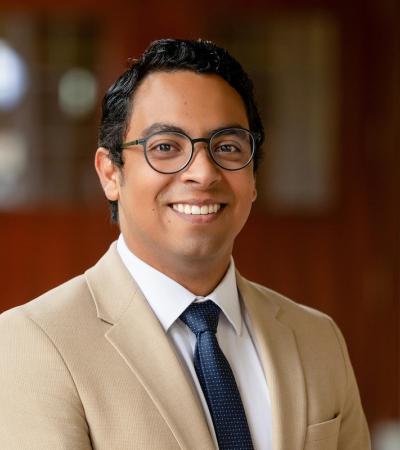Ángel Muñoz-Carpintero is a honduran lawyer and current JSD candidate at Notre Dame Law School. As a JSD candidate, he is currently researching the impacts of militarism in the justice systems of Guatemala, Honduras, El Salvador, and Nicaragua, under the direction of Prof. Mary Ellen O'Connell. In 2021, he received a LL.B. from the Universidad Nacional Autónoma de Honduras (cum laude), having won various national and regional human rights Moot Courts in Honduras, as well as the award for Best Written Argument at the 24th Inter-American Human Rights Moot Court Competition at American University in Washington DC. He also served in the Law School's Student Board Association. In 2019, Angel started an internship at the Office of the United Nations High Commissioner for Human Rights (OHCHR) in Honduras, later becoming an Associate Human Rights Officer in OHCHR's Rule of Law and Accountability Unit from 2020 to 2023. During his time at OHCHR, he contributed to the organization's work on Persons Deprived of Their Liberty, citizen security and human rights, and the documentation of torture, extrajudicial execution and enforced disappearance cases. He also contributed and led processes in human rights monitoring of the situation in Honduras during the COVID-19 Pandemic, the 2021 General Elections and the selection of the Supreme Court between 2022 and 2023, as well as access to justice processes of victims of serious human rights violations.
He received a LL.M. in International Human Rights Law from the University of Notre Dame in 2024 (magna cum laude). During his time as a LL.M. student, Angel wrote his LL.M. thesis under the supervision of Prof. María Maciá, titled The relationship between the right to privacy and the right of peaceful assembly and its implication in informational privacy international regulation. He also worked as a Research Assistant for Prof. Abby Córdova at the Kellogg Institute for International Studies, researching on the criminal system in Central American countries and the impacts of mano dura policies in criminal law in light of international law.






